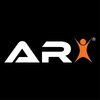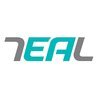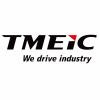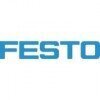Filter interviews by
GKN Graduate Engineer Trainee (Get) Interview Questions and Answers
GKN Graduate Engineer Trainee (Get) Interview Experiences
1 interview found
Interview Questionnaire
1 Question
- Q1. DME FAV SUBJECT COMMON MECHANICAL QUESTIONS
Interview Preparation Tips
Top trending discussions






Interview questions from similar companies

Graduate Engineer Trainee (Get) Interview Questions & Answers
Johnson Controlsposted on 26 Jan 2022
I applied via Campus Placement and was interviewed before Jan 2021. There were 3 interview rounds.
Interview Questionnaire
1 Question
- Q1. Questions from sensor and transducers, your project in detail,control strategies were asked.
Interview Preparation Tips

Graduate Engineer Trainee (Get) Interview Questions & Answers
Siemensposted on 20 May 2017
I appeared for an interview in Aug 2016.
Interview Questionnaire
3 Questions
- Q1. Mention the difference between microcontroller and microprocessor?
- Ans.
Microcontroller is a compact computer on a single chip with built-in memory and peripherals, while microprocessor is just a CPU.
Microcontroller has on-chip memory and peripherals, while microprocessor requires external memory and peripherals.
Microcontroller is used in embedded systems, while microprocessor is used in personal computers.
Examples of microcontrollers include Arduino, PIC, and AVR, while examples of microp...
- Q2. Mention various diodes used in electronic circuits.
- Ans.
Diodes are electronic components that allow current to flow in one direction. Various types of diodes are used in electronic circuits.
Rectifier diodes
Zener diodes
Schottky diodes
LEDs
Varactor diodes
Tunnel diodes
Photodiodes
PIN diodes
- Q3. Mention the role of SCR
- Ans.
SCR stands for Silicon Controlled Rectifier. It is a semiconductor device used for power control and switching applications.
SCR is used in various applications such as motor control, lighting control, and heating control.
It is used in AC power control circuits to regulate the amount of power delivered to a load.
SCR is also used in voltage regulators, inverters, and battery chargers.
It is a three-terminal device consist...
Interview Preparation Tips
Experience: This test had 3 sections- Quant,DI and verbal. It was a CAT-type exam but difference was there was time limit of 60-90 seconds for each question.
Tips: Speed and accuracy are important for clearing this test
Duration: 1 hour 30 minutes
Total Questions: 60
Round: Test
Experience: This test contained basic electronics questions.Most of the questions were from 2 nd year sylabbus.
Tips: Be thorough with the basics to ace this test.
Duration: 30 minutes
Total Questions: 30
Round: Technical + HR Interview
Experience: Only 6-7 questions were asked during the interview.All of them were rather simple which involved basic questions.
Tips: Maintain composure during the interview.Dont press the panic button.
Skills: Technical Analysis
College Name: Visvesvaraya National Institute Of Technology
Skills evaluated in this interview

Graduate Engineer Trainee (Get) Interview Questions & Answers
Johnson Controlsposted on 23 Mar 2015
Interview Preparation Tips
Experience: The written test was of around 45 mins.Paper consisted of approx 50 questions, both technical(Mech+ EEE) as well as general aptitude.
Duration: 45 minutes
Total Questions: 50
Round: Technical Interview
Experience: My interviews took place for around 1 hour.In interviews they asked me some finance and marketing questions, a case study, puzzles, projects and internships. At last they selected just 2
General Tips: It was challenging for me because I was not having a good cgpa like my competitors. Still I was confident throughout the selection process.
Skill Tips: The company profile was sales and marketing.It's a core company so they were open for Mech & EEE, Mechatronics(M-tech)only. Before the interviews go through some online papers of the company and also some HR questions.Since the company came for marketing profile, they really wanted a leader to leadthe market.
College Name: NIT SURATHKAL

Graduate Engineer Trainee (Get) Interview Questions & Answers
Johnson Controlsposted on 6 Oct 2015
I applied via Campus Placement
Interview Questionnaire
5 Questions
- Q1. Basic design procedure
- Q2. Things you look in moulds
- Ans.
I look for quality, durability, and precision in moulds.
Quality of the material used in the mould
Durability of the mould to withstand repeated use
Precision in the mould's design and manufacturing process
Ability to produce consistent and accurate parts
Ease of maintenance and repair
Compatibility with the intended manufacturing process
- Q3. Press tools
- Q4. Heat transfer
- Q5. Som and mechanics
Interview Preparation Tips
Experience: aptitude was not so easy as it consists of quantative logical and technical.
10 questions were on technical mainly focused on mechanics , som and machine design. if your basics are clr then u can easily crack the apti.
Tips: make yourself clr . and mark the correct answers within 1 min. if u r comfident that you can solve 40 quest in 60 min then do that instead of taking tenaion of solving all problems.
Duration: 60 minutes
Total Questions: 60
Round: CAD MODEL TEST
Experience: test was based on catia and nx. you have to make a model frm dummy model by using commands. then your model should b free from the orignal one. we call it as breaking the linkage.
Tips: whatever you do after every step save it. and then zee weather its breaking the link or note. on every step it woill reduce your labour.
Round: Technical Interview
Experience: anyone can read it frm machine design book of rs khurmi
Tips: read the basic concepts daily. make yourself cear in every doubt that occours in your mind
Round: HR Interview
Tips: be confidend. be professional.
General Tips: be prepared for any question. have energy in you
it should look in your face. b smart.
Skills: som, gd&t symbols, jigs and fixtures, press tools, moulds, catia
College Name: BECHALOR OF ENGINEERING, jawaharlal nehru engineering college
Motivation: good environment. work friendly nature.
Funny Moments: in hr interview the asked me about "how long will you stay in johnson?"
i took a pause and said sir i was planning for my retirement plan in your firm.

Graduate Engineer Trainee (Get) Interview Questions & Answers
Johnson Controlsposted on 7 Oct 2016
Interview Preparation Tips
Experience: I am M tech Design Engineering student at MNNIT Allahabad.
Johnson Controls came to our campus first time.They have Written test then technical interview and after that HR+Technical Interview.They set the cutoff of 7 CGPA for the written test.After getting shortlisted i appeared for the online exam.The exam consist of technical +aptitude+English. Questions were easy theoretical based and mainly from fluid hmt thermodynamics.English questions were also easy.
Tips: Time to complete the test will be sufficient also in there exam portal there is no back option you can either skip or select and move forward option but nothing to worry .The question which you will skip will come back at the end of the exam you can attempt them then if you want.
Round: Technical Interview
Experience: In Technical interview 3 panel consisting of 1 interviewer were made.Students are sent according to there brach in respective panel.In interview my interviewer ask mainly RAC Thermodynamics basics also some discussion about the company were there.He also ask me details about my thesis work.
Tips: Interview is easy they are mainly focusing on your Communication skill and expression.Technical is not that hard.
Round: HR Interview
Experience: In HR+Technical interview the shortlisted student from the technical round are interviewed.Panel consist of 5 people and they ask about your future perspective wrt company what you think about there company your role in there company .They also try to put some difficult question but answer them confidently and politely.Technical question along with HR questions were asked.
General Tips: Visit there website learn about company and there projects in india.focus on your Communication technical is not that much hard.
Skill Tips: Speak clearly and fluently.For technical part dont take much pressure.As for mechanical engineering students mainly hmt fluid rac are asked.Please look into there website and see there Global ranking ,there achievements and there projects in india it will help you in HR round .
Skills: Technical Skill And Speaking Skill
College Name: NIT ALLAHABAD

Graduate Engineer Trainee (Get) Interview Questions & Answers
Johnson Controlsposted on 4 Jul 2017
I appeared for an interview in Aug 2016.
Interview Preparation Tips
Experience: The aptitute level of JC was preety high. The questions were tough comprising of questions from quantitative and logical reasoning.
Tips: Practise hard on aptitude coz this is the most important round for this company during on campus placements
Round: Technical Interview
Experience: The aptitute level of JC was preety high. The questions were tough comprising of questions from quantitative and logical reasoning.
Tips: Practise hard on aptitude coz this is the most important round for this company during on campus placements
Round: Technical + HR Interview
Experience: This round was to test your basic programming and problem solving skills.
Tips: You should be strong in your basic core sbjcts and very good at programming approach to solve problems
College Name: Netaji Subhash Engineering College

Graduate Engineer Trainee (Get) Interview Questions & Answers
Johnson Controlsposted on 23 Aug 2017
I appeared for an interview in Aug 2017.
Interview Preparation Tips
Experience: It was supposed to be a quantitative aptitude test but it turned out to be a general knowledge based test with a few technical and verbal questions.
Duration: 1 hour
Total Questions: 60
Round: Technical + HR Interview
Experience: Both technical and HR questions were asked to me during this round. My interviewer asked about my area of interest and the technical questions followed accordingly.
College Name: B.P.P.I.M.T

Graduate Engineer Trainee (Get) Interview Questions & Answers
Johnson Controlsposted on 23 Aug 2017
I appeared for an interview in Aug 2017.
Interview Questionnaire
11 Questions
- Q1. What's modulation? Why is it required?
- Ans.
Modulation is the process of varying a carrier signal's properties to transmit information efficiently.
Modulation is used to transmit information over long distances.
It allows multiple signals to be transmitted simultaneously without interference.
Modulation helps in improving the signal quality and reducing noise.
Different modulation techniques include amplitude modulation (AM), frequency modulation (FM), and phase mod...
- Q2. What does program counter do?
- Ans.
The program counter is a register that keeps track of the next instruction to be executed in a computer program.
The program counter is a special register in a computer's central processing unit (CPU).
It holds the memory address of the next instruction to be executed.
After each instruction is executed, the program counter is incremented to point to the next instruction.
In case of conditional or unconditional jumps, the ...
- Q3. Difference between latch and flip flop.
- Ans.
A latch is level-sensitive and stores data as long as the enable signal is active, while a flip flop is edge-triggered and stores data only on the rising or falling edge of the clock signal.
Latches are level-sensitive, while flip flops are edge-triggered.
Latches store data as long as the enable signal is active, while flip flops store data only on the rising or falling edge of the clock signal.
Latches are simpler and h...
- Q4. Functioning of op-amp
- Ans.
Op-amp is an electronic device that amplifies the difference between two input voltages.
Op-amp stands for operational amplifier.
It has a high gain and can amplify signals.
It has two input terminals, one inverting and one non-inverting.
The output voltage is the amplification of the voltage difference between the input terminals.
Op-amps are widely used in various applications such as amplifiers, filters, oscillators, and
- Q5. How many classes are there in C? Explain.
- Ans.
There are no classes in C as it is a procedural programming language.
C is a procedural programming language, not an object-oriented one.
It does not have the concept of classes or objects.
Instead, it uses functions and structures to organize code.
Structures can be used to create user-defined data types.
For example, a structure can be defined to represent a person with attributes like name, age, and address.
- Q6. Introduce yourself!
- Ans.
I am a Graduate Engineer Trainee with a passion for problem-solving and a strong background in engineering.
I have recently completed my Bachelor's degree in Mechanical Engineering from XYZ University.
During my studies, I gained hands-on experience in various engineering projects, including designing and building a prototype for a solar-powered vehicle.
I have a solid understanding of engineering principles and have deve...
- Q7. What are your plans for masters?
- Ans.
I plan to pursue a master's degree in Engineering Management to enhance my technical and managerial skills.
I intend to specialize in Engineering Management to gain a deeper understanding of the business aspects of engineering.
I aim to develop strong leadership and project management skills through coursework and practical experiences.
I plan to conduct research in the field of sustainable engineering practices to contri...
- Q8. Would you have any problem if you are placed in Mumbai or Pune?
- Ans.
No, I would not have any problem being placed in Mumbai or Pune.
I am open to working in any location as long as it aligns with my career goals.
I have researched about Mumbai and Pune and I find them both to be vibrant cities with ample opportunities.
I am adaptable and can easily adjust to new environments and cultures.
I believe that being placed in Mumbai or Pune would provide me with valuable experiences and exposure ...
- Q9. Where do you see yourself after 3 years?
- Ans.
In 3 years, I see myself as a senior engineer, leading a team and contributing to the development of innovative projects.
Leading a team of engineers
Contributing to the development of innovative projects
Continuing professional growth and learning
Building strong relationships with colleagues and clients
- Q10. Draw any counter using D-flip flip
- Ans.
A D-flip flop can be used to create a counter by connecting the output of one flip flop to the input of the next.
Connect the output of one D-flip flop to the input of the next
Use the clock signal to trigger the flip flops
Set the initial value of the counter
Use additional logic gates if necessary to control the counter behavior
- Q11. What is multivibrator?
- Ans.
A multivibrator is an electronic circuit that generates a continuous output waveform of a specified shape and frequency.
Multivibrators are used in various applications such as timing circuits, frequency dividers, and waveform generators.
There are three types of multivibrators: astable, monostable, and bistable.
Astable multivibrators produce a continuous square wave output with no stable state.
Monostable multivibrators ...
Interview Preparation Tips
Experience: Easy to moderate questions. Mostly from indiabix site. NO quantitative questions at all! This came as a surprise for all of us (Johnson Controls' pattern is unpredictable!). GK questions varied from geography to current affairs.
Tips: Go through indiabix site. Most of the questions were directly/indirectly from this site only.
Duration: 1 hour
Total Questions: 60
Round: Technical Interview
Experience: Level easy questions were asked. They were checking basics only. But the questions were asked from many subjects. Good experience overall.
Tips: Prepare atleast 3 subjects from core and atleast 1 programming language.
Not everyone knows everything. Be straight forward. If you don't have an answer to a question then straight away say "sir I don't know"
If you waste interviewer's time, you are making it easy for him to reject you.
Be crisp!
Round: Technical + HR Interview
Experience: There were 6 members in the panel. Technical and HR questions were coming randomly at me from left and right.
Tips: Walk in confidently. Stay confident throughout. Stay fresh. Be natural. Don't worry if you fumble, everyone does! Take your time here. At the end, either shake hands with everyone or don't shake hands at all. (I prefer shaking hands)
Note: prepare the answer of "introduce yourself" beforehand. It can't be impromptu. This is the ice-breaking question.
College Name: B. P. Poddar Institute of Management & Technology
Skills evaluated in this interview

Graduate Engineer Trainee (Get) Interview Questions & Answers
Siemensposted on 4 Apr 2021
Interview Questionnaire
1 Question
- Q1. Basic technical questions regarding my b.tech specialization I .e, electrical engineering and basci plc programming
Tell us how to improve this page.
GKN Interviews By Designations
- GKN Assistant Manager Interview Questions
- GKN Quality Engineer Interview Questions
- GKN Mechanical Engineer Interview Questions
- GKN Electrical Maintenance Engineer Interview Questions
- GKN Manufacturing Engineer Interview Questions
- GKN Assistant Executive Engineer Interview Questions
- GKN Area Business Manager Interview Questions
- GKN Assistant Manager Design Interview Questions
- Show more
Interview Questions for Popular Designations
- Graduate Apprentice Trainee Interview Questions
- Graduate Trainee Interview Questions
- Graduate Apprenticeship Trainee Interview Questions
- Graduate Engineer Interview Questions
- Production Graduate Engineer Trainee Interview Questions
- Graduate Student Interview Questions
- Graduate Apprentice Interview Questions
- Post Graduate Engineer Trainee [pget] Interview Questions
- Show more
Graduate Engineer Trainee (Get) Interview Questions from Similar Companies
Fast track your campus placements
GKN Graduate Engineer Trainee (Get) Reviews and Ratings
based on 4 reviews
Rating in categories
|
Assistant Manager
113
salaries
| ₹5.5 L/yr - ₹17 L/yr |
|
Oprating Engineer
102
salaries
| ₹1.5 L/yr - ₹3.5 L/yr |
|
Production Engineer
85
salaries
| ₹1.6 L/yr - ₹6.4 L/yr |
|
Deputy Manager
66
salaries
| ₹10 L/yr - ₹20.1 L/yr |
|
Quality Engineer
66
salaries
| ₹1.8 L/yr - ₹4 L/yr |

Siemens

Schneider Electric

Johnson Controls

Honeywell Automation
- Home >
- Interviews >
- GKN Interview Questions >
- GKN Graduate Engineer Trainee (Get) Interview Questions
















